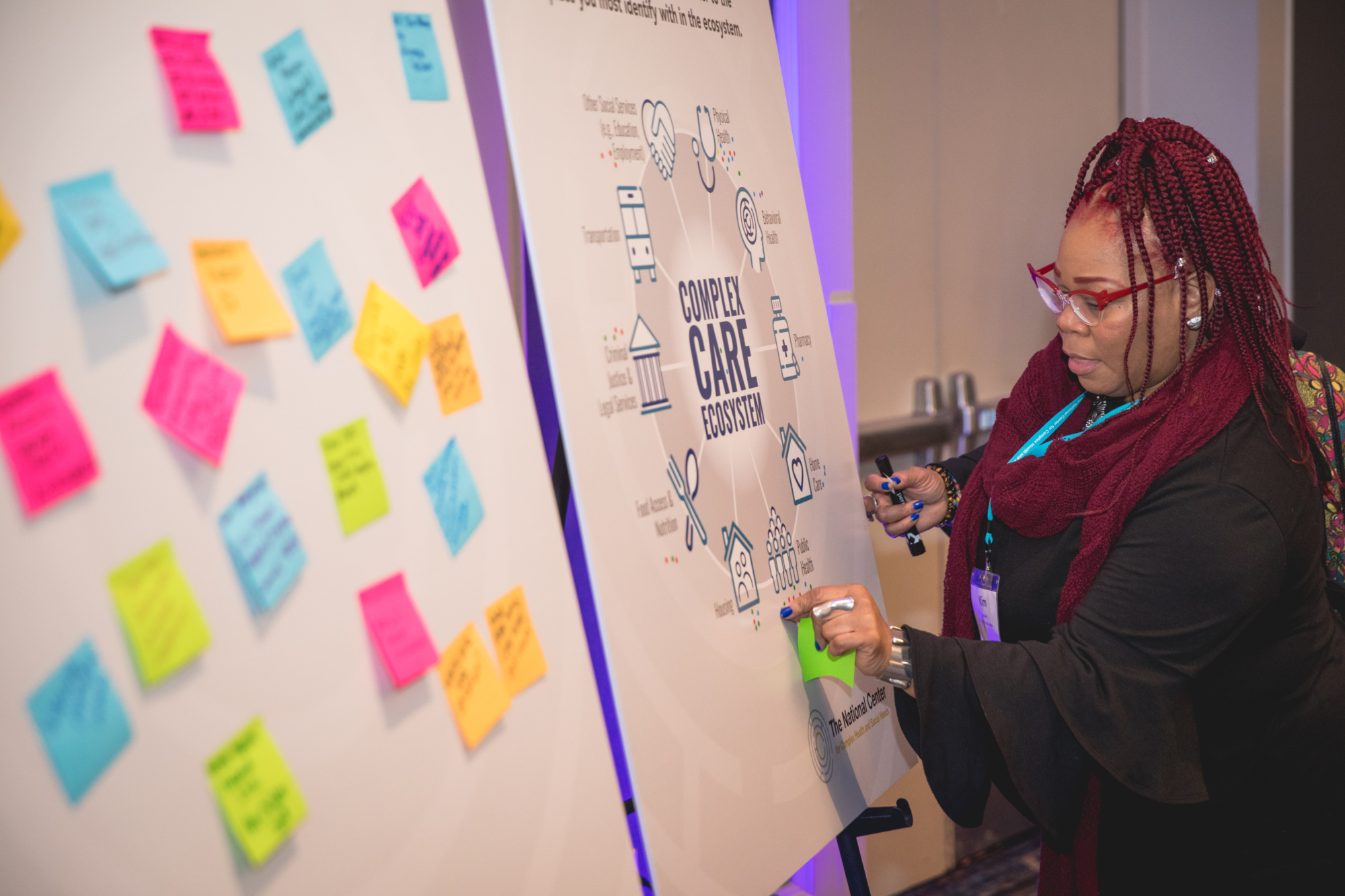Core competencies for frontline complex care providers
Building the complex care field Education & training Workforce development
Care management & redesign Community & consumer engagement Education & training SDOH & health equity Workforce development
Motivational interviewing (MI) is a person-centered, goal-oriented approach designed to enhance individuals’ motivation for change by helping them explore and resolve ambivalence. Originally developed in the 1980s to support addiction treatment, MI has since expanded into healthcare, mental health, social work, and coaching as an evidence-based method to empower individuals toward positive behavioral change.
The Camden Coalition uses motivational interviewing techniques to support individuals with complex health and social needs. By integrating MI into patient care, the Camden Coalition helps individuals navigate barriers to healthcare and social support, ultimately leading to improved health outcomes.
To define motivational interviewing, it is essential to recognize its foundation in collaboration, compassion, and patient empowerment. MI is not directive in the traditional sense but instead encourages individuals to discover their own motivations for change rather than being told what to do. The approach is based on four core processes:
The PACE (partnership, acceptance, compassion, and evocation) principles are the foundation of motivational interviewing techniques, guiding practitioners to foster meaningful, patient-centered conversations that encourage change.
By applying the PACE principles, practitioners using motivational interviewing skills create an environment where individuals feel empowered to make informed, meaningful changes in their lives.
OARS is an acronym describing the key skills used in motivational interviewing. It stands for:
These motivational interviewing skills help guide clients through the stages of change, a psychological model that describes how individuals move from ambivalence to action.
The motivational interviewing stages are based on the Transtheoretical Model of Change:
By understanding where a person is in the stages of change in motivational interviewing, practitioners can tailor their approach to facilitate meaningful progress.
Change talk in motivational interviewing refers to statements made by the client that indicate a desire, ability, reason, or need for change. Encouraging change talk increases the likelihood that a person will take action.
By using motivational interviewing questions that elicit change talk, practitioners help clients strengthen their commitment to change.
Effective MI requires motivational interviewing training, which equips professionals with the skills needed to implement MI techniques in various settings. Training typically includes:
The Camden Coalition Learning Center offers extensive training opportunities for professionals looking to enhance their MI skills in complex care settings.
Through motivational interviewing, Camden Coalition builds authentic healing relationships, empowering clients to make sustainable changes.
Motivational interviewing is a proven method for guiding individuals toward positive change through empathetic and collaborative conversations. By leveraging motivational interviewing techniques, professionals can support individuals in overcoming ambivalence and taking action toward healthier behaviors.
For those wondering how to do motivational interviewing or interested in motivational interviewing training, visit the Camden Coalition Learning Center. The Complex Care Certificate and Skills Lab both cover motivational interviewing principles and best practices.
The Camden Coalition is a multidisciplinary, community-based nonprofit working to improve care for people with complex health and social needs in the city of Camden, across New Jersey, and around the country. We develop and test care management models and redesign systems in partnership with consumers, community members, health systems, community-based organizations, government agencies, payers, and more, with the goal of achieving person-centered, equitable care.
As one of New Jersey’s four Regional Health Hubs, the Camden Coalition works with regional partners, New Jersey’s Medicaid office, and other state agencies to expand data-sharing and collaboration between organizations so that patients across South Jersey experience seamless, whole-person care. You can visit the Camden Coalition Learning Center to register for on-demand, curated courses that provide skills and resources to develop and grow complex care programs.
You can also register for our free monthly newsletter to receive updates on our local, state, and national work.
Building the complex care field Education & training Workforce development
Building the complex care field Education & training Workforce development



